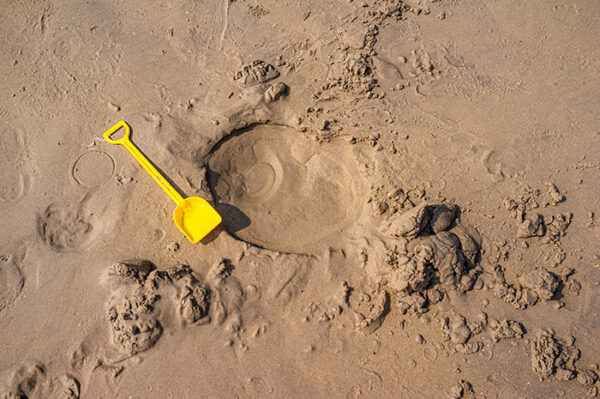We get the technology we deserve. In the pipeline (or it may be already here – my toddler is ill, I haven’t been outside for a week and I don’t know anyone over three or under 30 who can keep me up to date, so who knows what’s happening?) is ‘transparent texting’ (thank you, moneill). It is offered/will be offered/has been offered for so long that by the time you read this it will be the iEquivalent of a papyrus scroll, by an app that superimposes whatever text you are writing or reading on a live feed from your camera, allowing you to hunch over your phone at all times, walking and reading or writing simultaneously, yet safely. Although, of course, it is proof that we are all in a larger sense striding swiftly towards the abyss. Still, in the meantime, the smart money’s on getting out of Apple and into scoliosis aides toot sweet.
C.C.W.4’s submission, ‘microadventures’ is more endearing. Small adventures. Adventures close to home, more Family from One End Street daytripping (microjaunting?) to the seaside, passing the eleven-plus, sneaking into the cinema (microrecidivism?) and Joyce Lankester Brisley’s heroine buying wool, growing mustard and cress and visiting fetes (Milly-Molly-microadventuring) than hightailing it to Narnia or haring exhaustingly all over Middle Earth.
‘Scelestic’, contributed by WritersCramp is an old word meaning ‘wicked’ or ‘evil’ which has fallen into obsolescence. This seems strange (although there is rarely much rhyme or reason as to which words endure and which fall by the wayside). Given the plenitude of wickedness and evil in the world, you’d think the least we could gain in return would be a multitude of synonyms for describing it – and ‘scelestic’ is such a good one. It’s got two hisses, a brace of brutally hard ‘c’s and to pronounce the whole thing you need to strip back your lips, bare your teeth to the world and look like you’re in rictus. Evil, in short, personified.
‘Wackaging‘, from runriot, describes the sort of cutesie-wutesie, faux-friendly verbiage on the packaging of various (especially food) brands who would like to convince you that their goods are all produced round a big farmhouse table by one big happy family who have baked the bonhomie right in rather than a scelestic (eh?! Eh?!) global corporation intent on wringing every last drop of juice from its battery melons, energy from its workers and profits from its gullible and gulled customers. Maybe this works in US markets and those of other nations more warm-hearted, less cankered and/or simply stupider than the UK. But here I suspect research would show that it causes more people to reach for the nearest bucket and bring up, rather than pick up their lunch. Or is it just me who prefers to drink a smoothie without a personal introduction to the various fruits pulverised for the purpose?
Answers on a postcard, please, and I’ll see you again in a fortnight.




